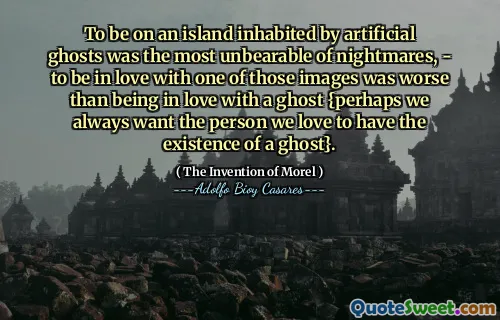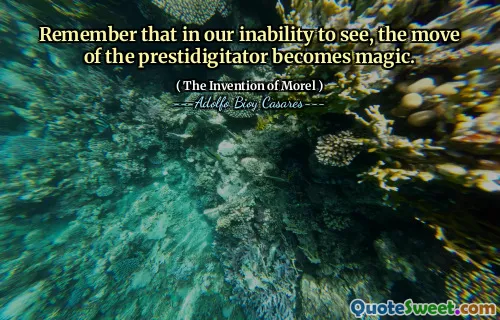
To be on an island inhabited by artificial ghosts was the most unbearable of nightmares, - to be in love with one of those images was worse than being in love with a ghost {perhaps we always want the person we love to have the existence of a ghost}.
This quote delves into the haunting nature of illusion and the human desire to cling to idealized images of love. It suggests that the torment of living among artificial or illusory beings—'artificial ghosts'—can be more disturbing than tangible fears because it confronts our deepest longing for connection with something eternal or perfect. When our affection is directed toward mere images—faint echoes of a person or ideal—we are effectively in love with a shadow, a specter that provides comfort yet denies us real intimacy. The comparison to ghosts emphasizes the ephemeral, insubstantial quality of such love—an attachment to something that cannot truly exist or provide lasting fulfillment. The phrase 'perhaps we always want the person we love to have the existence of a ghost' hints at a fundamental human tendency: to idealize our loved ones, filling their presence with ambiguity and mystique, while avoiding the vulnerability of genuine connection. This nostalgic longing for the permanence of a ghostly presence may serve as a psychological refuge, allowing us to interpret love as something ghost-like—elusive, intangible, yet hauntingly beautiful. The original context, from (The Invention of Morel), reveals the profound exploration of love, reality, and perception—an obsession with the perfect illusion over imperfect truth. Such ideas resonate universally because they touch on the eternal human conflict between longing for the ideal and confronting reality, often leaving us caught in a paradox of desire and disappointment.







